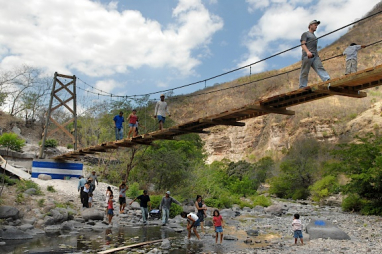The era of active citizenship

Volunteering is a key part of the life experience of millennials and it enables young professionals to make an impact in the infrastructure sector in the early days of their careers, say Anastasios Stamatis and Petros Kkolas.
Helping others in need, devoting your free time, improving a community and providing relief during a crisis has been an often overlooked but integral part of the human race. Our history is filled with volunteers who followed their instinct of compassion and helped shape our world to what it is today.
According to the 2016 Millennial Impact Report, volunteering is one of the key ways millennials use to act as catalysts for societal change. And with good reason; being passionate about the resolution of an issue you care about can give you cause, meaning, and a rewarding sense of fulfilment.
Who would not be impressed, for example, by Let’s Do It! World, a network of over 16 million volunteers from 116 countries who undertake national environmental clean-ups. All the clean-ups within a country take place on the same day and the ever-growing success of the campaign has led to the first planet-wide clean-up day being scheduled for 2018. Or consider the brave volunteers from all over Europe and the world, joining forces in Greece to help Syrian refugees who put themselves and their families in danger, to escape the horrors of war in hope of a better life?
And landing a bit closer to our own industry, what about Bridges to Prosperity, set to diminish rural isolation by building footbridges to provide isolated communities with access to essential health care, education and economic opportunities? Engineering professionals and students have been involved as volunteers in the construction of over 200 bridges in 20 countries, improving the lives of nearly a million people.
This potential of making the world a better place through purpose and passion for change has also been acknowledged by the European Union. Last December, the European Solidarity Corps was established, supporting young people in projects that benefit communities all over Europe.
So what is it that drives millennials to devote their time to a cause they care about? According to the Impact Report, the answer is the cause itself. With the credit crunch being a major part in the first steps of our adult life, we saw organisations and leaders rise and fall in an instant. We experienced the truth behind the words of Heraclitus, the Greek Philosopher that “everything flows”. In an ever-changing world, values and ideals are the anchors on which we set our dreams.
According to the 2015 Impact Report, 77% of millennials would be more likely to volunteer if they could use their specific skills or expertise to benefit a cause. As an industry, we need to understand this potential. In our industry’s professional bodies we highly value the input from members with infrastructure-specific knowledge and skills who can help improve our industry and the society.
Volunteering with a professional body is an opportunity to test and sharpen our organisational skills, our communication methods and our affiliation with modern technology. Organising events to spread the knowledge around key infrastructure topics brings together a set of like-minded individuals. People of all ages, established thought leaders, or leaders in the making. Like pieces of a puzzle, when they are together they can uncover the big picture and help the industry go forward, breaking stereotypes.
We have to keep working towards a more open, more inclusive industry and for millennials this comes through peer to peer engagement, as nothing is more powerful than personal contact. Putting names to faces of our industry’s leaders and understanding their drivers and views can help us understand our own future too.
Above all, this participation gives us purpose. By understanding the industry, we are in a position to raise awareness, to connect and to act. And we are able to speak our mind, to influence change, to make an actual impact in the infrastructure sector on the early days of our career.
We are not just industry newcomers within our professional bodies; we are proud volunteers trying every day to uncover the map of infrastructure, connect with our peers, and make a positive change in people’s lives.
Anastasios Stamatis is a graduate engineer at BWB Consulting and chair of Progress Network Midlands. Petros Kkolas is a graduate engineer at Waterman Aspen and vice-chair of Progress Network Midlands.



